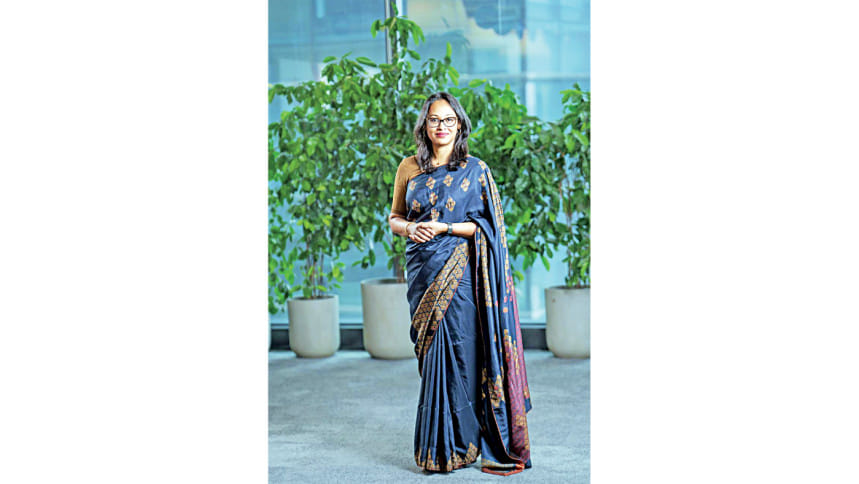Why we must invest in women

When I started working in the early 2000s, women in Bangladesh were making significant strides. The media celebrated their entry into traditionally male-dominated fields such as aviation, defence, and engineering, showing a hopeful sign of progress towards gender equality. Even today, women continue to make their mark across sectors, from corporate boardrooms to border patrols. In 2023, Bangladesh was recognised as the leader in gender equality in South Asia by the World Economic Forum. According to the Bangladesh Bureau of Statistics (BBS), women's participation in the workforce increased from 30 percent in 2010 to 42 percent in 2023.
Despite this progress, we are beginning to see setbacks. Barriers such as school dropouts and early marriages threaten to erode these achievements. While 92 percent of girls enrol in school, many do not complete secondary education. After the pandemic, 55 percent of school dropouts were girls, with many being pushed into early marriage. Unicef reports that 41.6 percent of girls marry before the age of 18, the highest rate in South Asia, cutting short their education and confining them to unpaid domestic roles.
The difference between rhetoric and reality is also evident in how we allocate resources for gender issues.
Bangladesh was once a regional leader in introducing gender budget statements across more than 40 ministries. The proportion of the national budget categorised as gender-relevant rose from 25 percent to 34.11 percent. However, the share of GDP allocated to spending that supports gender equality declined from 5.19 percent in 2024 to 4.86 percent in 2025, raising questions about our genuine commitment to this cause.
Moreover, budget allocations often overlook key drivers of women's economic participation, such as skills training, entrepreneurship, and digital access. In 2024, only 15.8 percent of the ICT Division's budget and 2.2 percent of the Ministry of Science and Technology's budget were earmarked for women-focused projects. This underinvestment in women's inclusion in STEM (Science, Technology, Engineering, and Mathematics), a rapidly growing field, risks leaving women behind.
This issue is especially urgent as Bangladesh prepares for a tighter budget in 2026. The Annual Development Programme (ADP) is expected to shrink by Tk 35,000 crore, potentially threatening funding for initiatives that support women's employment and workplace safety.
In this context, we must move beyond symbolic gestures, such as tax breaks for women, towards meaningful investment. Priorities should include childcare, safe transportation, workplace grievance mechanisms, and stronger incentives for businesses to adopt gender equity policies.
Development partners also underscore the urgency. The World Bank links Bangladesh's resilience to increased female workforce participation. The International Monetary Fund (IMF) estimates that closing the gender gap could boost GDP by nearly 40 percent. These are not merely moral imperatives, they are economic necessities.
Targeted investments in women's leadership and STEM participation through scholarships, mentorships, and internships, especially for rural women, are vital. We must also enhance representation in politics, public service, and corporate boards by establishing clear pathways and providing adequate funding.
Additionally, we cannot ignore the informal economy, where many women remain invisible. Gender budgeting must allocate resources to support these women by ensuring access to credit, legal protections, and digital tools.
History is on our side. In the 1990s, Bangladesh improved girls' education through stipends and fee waivers, raising female literacy from 26 percent in 1990 to 75.8 percent in 2023. Over the same period, GDP per capita grew from $298 to an expected $2,690 in 2025, surpassing Pakistan. This progress was powered by the very girls we educated.
As we look ahead to the 2026 budget, decisive action is needed. Growth that excludes women is not only unjust but also unsustainable. Let this budget reflect a genuine commitment to gender equality and deliver real impact. The future we envision depends on it.
The writer is the director of corporate affairs (partnerships and communications) at Unilever Bangladesh Limited

 For all latest news, follow The Daily Star's Google News channel.
For all latest news, follow The Daily Star's Google News channel. 



Comments